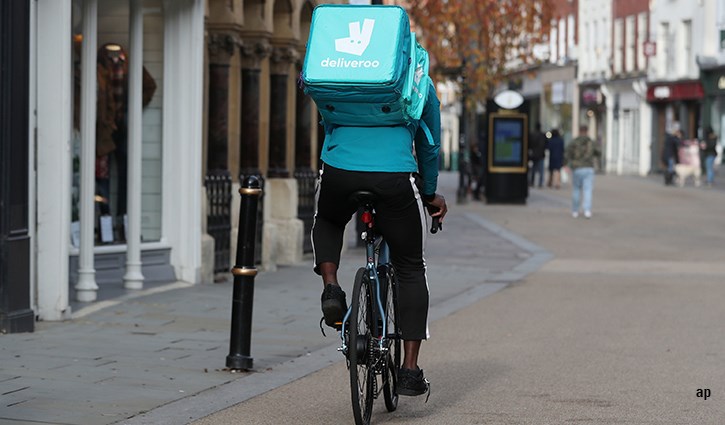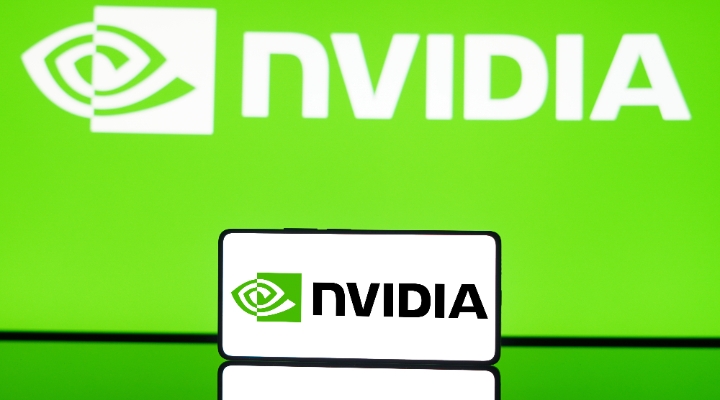
Airbnb’s IPO at the close of 2020 saw the company's value soar from $35 billion to $100 billion, suggesting that even a global pandemic couldn’t dim investors’ appetite for hot new floats.
Closer to home, e-commerce company The Hut Group (THG) was the biggest listing in the UK last year and the shares are up 50% since it floated. Global stock markets are back in “risk-on” mode with a new US President and the Covid-19 vaccine being rolled out at pace, and more companies are set to make the leap to public entity.
We look at some of the highlights for UK investors in the coming months: some will be very familiar to UK consumers, with boot maker Dr Martens and takeaway disruptor Deliveroo among the imminent IPOs.
2020: The Year of the Hut
While 2020 was not a bumper year for UK IPOs in terms of numbers of companies listing, some 23 names joineds on the main market, the same as in 2019. That's some achievement given the market volatility in the first half of the year.
But in terms of value, companies floating on the main market were valued at £9.4 billion in 2020, compared with £12.5 billion the prior year, a drop of around 25%. UK e-commerce company The Hut Group was the largest float by value on the London Stock Exchange in 2020 and the biggest for five years.
The company, which manages websites for online retailers in the beauty and nutrition space, went public at 500p in September, valuing the company at £4.5 billion. Shares have since risen to 720p, valuing the firm at just under £7 billion.
The Hut Group has attracted the interest of fund managers such as Philip Webster, manager of BMO UK High Income (BHI) investment trust, who says it is a “completely unique asset in the UK space”. Fund group Merian also owns a large chunk in THG, according to Morningstar Direct data, via funds like the Gold-rated Merian UK Mid Cap.]
Deliveroo
A handful of consumer-facing companies are preparing to float in London this year, including takeaway app Deliveroo and the iconic Northamptonshire boot maker Dr Martens.
To start with the biggest expected IPO in London this year, Deliveroo is taking on the likes of food delivery giant Just Eat Takeaway (JET), which is worth just over £12 billion and is listed in London and Amsterdam. Morningstar-owned data company Pitchbook values Deliveroo at around $6.5 billion based on its last financing round in mid-January, when it raised $180 million from investors such as fund manager Fidelity. Deliveroo isn’t a UK company per se; while it was started in London in 2013, chief executive and founder William Shu is a US entrepreneur and was mulling a New York listing. But London got the nod because the company has already made inroads into the UK’s biggest cities and has been boosted by lockdown life.
Previously loss making, Deliveroo turned profitable in its last financial period, and has attracted investment from retail giant Amazon (AMZN), whose stake has been cleared by competition authorities. Christopher Rossbach, manager of the J. Stern & Co World Stars Global Equity fund, says the involvement of Amazon will be crucial to Deliveroo’s fortunes – “If Amazon gets this right, it could create a food delivery business to rival some of the UK's major providers,” he says.
Dr Martens
Another multi-billion pound float is bootmaker Dr Martens, which traces its roots back to post-war Germany but first mass produced footwear in the UK in the 1960s. Several generations of alternative fashion and music scenes have adopted the chunky-soled shoes and boots, and the brand has recently gained traction with Instagram influencers. The company issued shares at 370p on its first day of conditional dealing on January 29, with the first full day's trading on February 3.
Warren Buffett’s “buy what you know” mantra could tempt some UK investors (and former punks) to buy into the IPO. But AJ Bell’s Russ Mould strikes a note of caution amid concerns the shoes may not be as well made as in the past: “Could it be that the business has suffered under private equity ownership? Many investors are sceptical about backing companies that are being sold by private equity, for fear they might have suffered from underinvestment and been subjected to a ‘quantity over quality’ approach for production.”
The Best of the Rest
Moving down the scale, other IPOs include online greetings cards firm Moonpig, whose shares rose 30% in conditional dealing on February 2, with a full debut set for February 5. Even in lockdown, people still expect birthday cards but the trip to the shop and post box has become more hazardous. The company is now valued above £1 billion.
According to broker IG, some potential upcoming IPOs this year include cyber security firm Darktrace, customer feedback aggregator Trustpilot, and McClaren, which owns a Formula 1 team and produces supercars with a bigger price tag than the average UK house. India conglomerate Tata, which owns Jaguar Land Rover, has been expected to spin out the car maker for many years now, so will 2021 be the year this finally happens?
Remember the Risks
With stock markets in bullish mode and some companies multiplying in value over short time periods, investors large and small could be forgiven for thinking that IPOs are an easy way of making money. Airbnb (ABNB) is up nearly 200% on its float price, for example.
There is now more scrutiny of how and why companies go public (rather than staying in private hands, as our guide to private equity explains), and many more fund managers are looking at unlisted companies for their portfolios (though not always with positive outcomes, for example Neil Woodford)
For every Airbnb, there’s an Uber (UBER) - which was much hyped but has only just regained its flotation price after two difficult years as public company. IPOs like Ant in China can become so high profile that politicians get involved, a risk that emerging market investors have to bear in mind.
AJ Bell’s Mould says there are signs the US IPO market is overheating, but that’s not yet a problem in the UK. “With only a select number of names announcing plans for an IPO so far in 2021, it is too early to be pressing the panic button about a deluge of new issues swamping investors,” he says.
But he warns investors to be on their guard for a glut of “secondary offerings”, which include share placings, rights issues and the like – a way of companies raising money from investors that has become popular since the coronavirus struck.





















